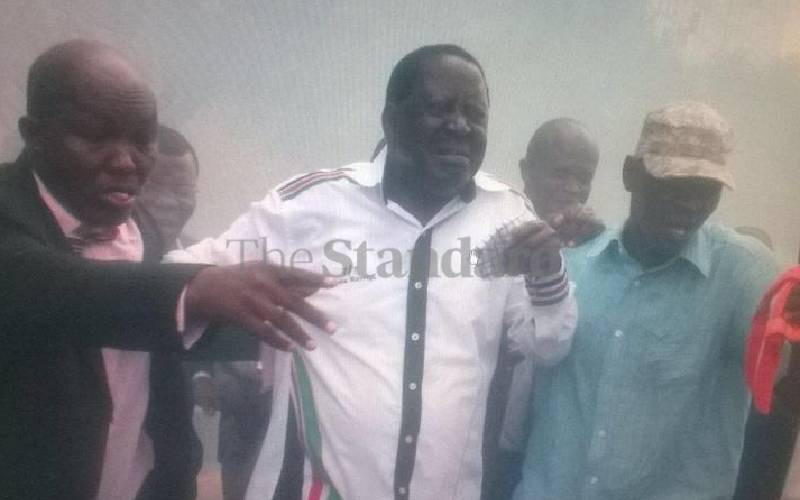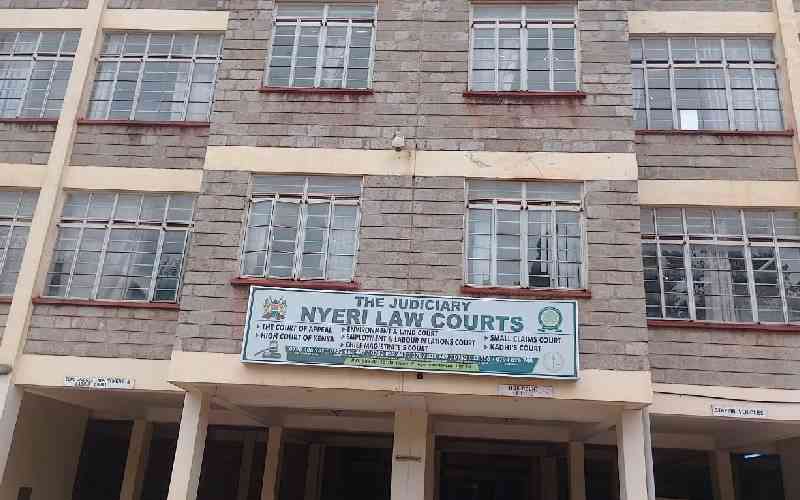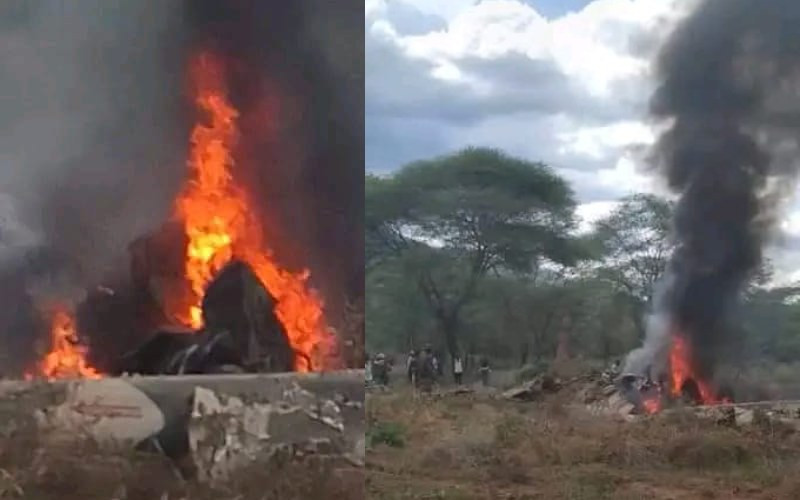Last week, images of Lang'ata Road Primary School pupils being tear-gassed evoked outrage and horror across the nation.
The condemnation that followed was swift, amidst blatant insistence by the area police boss that the police were safeguarding private property. The assertion made people wonder why the police arrived at the scene armed with tear gas, guns and dogs.
Did they arrive like this to fight an unarmed crowd that was predominantly made up of children?
There are so many ways in which this scenario could have turned tragic. What if some of the pupils had fallen over the wall and got crushed by stones? What if the children had run onto oncoming traffic?
Or those unaffected by the tear gas decided to rally against the police? Would the cops then have released the dogs and fired live bullets at them?
I acknowledge that most people, the activists included, feel like the means justified the end. When all other channels, even the legal ones, are exhausted, then we will and should think outside of the box.
But it is important to think beyond such actions. There is something called the law of unintended consequences.
This refers to a scenario where a certain action is put into motion and in the short term, achieves the desired results. In the long term, however, the action creates outcomes that could be positive or negative, in many cases exacerbating the original situation.
A famous example is the 'Cobra effect'.
In colonial India, the British government was concerned about the number of venomous cobra snakes in Delhi. For every dead cobra, the government offered a bounty and the strategy was largely successful.
However, enterprising people began to breed cobras to get income.
When the government became aware and scrapped the programme, the locals set the snakes, which were now worthless, free. This caused the wild cobra population to increase and in effect made the original situation even worse. But I digress.
With relation to the unintended consequences of #occupyLangata, at tender ages children are at their most impressionable. This is why, at their formative years, it is important to be conscious what messages we are passing on to them.
It is important to ensure children understand any special circumstances they are exposed to.
I hope, for the sake of future generations, that the activists and those fighting for social causes had a chat with the pupils and told them why the action that was taken suited this particular situation.
Stay informed. Subscribe to our newsletter
I hope that they conveyed the message, with utmost clarity, that all other channels had been exercised and that they yielded no positive results.
That pulling down that wall was for a higher cause - the restitution of the rights of the school and its pupils and was not an emotional response or punishment of a perceived transgressor. That in this case, the law had been followed but did not yield much.
If this is not made clear, then we might as well be passing the message that violence and physical engagement is the most effective means to resolve disputes. And that as a private developer, pardon me, as a land grabber, unless you anticipate this kind of backlash, you will most likely get away with your grubby ways.
Something else that maddens me as much is the role that the police so deliberately played in this saga. We have never shied away from criticising the police force so the current scenario will not surprise anyone. But we ought to understand Lang'ata marked a new low.
I am curious, would they tear-gas their own children, executive order or not? And if they had been told to open fire would they have shot at the children? Would we have had a situation like South Africa during the Apartheid era, replete with scenes of bleeding children being mauled by dogs?
That is probably an alarmist statement, but for a people who never seem to learn from the past or from other countries, this particular piece of history must never be allowed to repeat itself.
The ripple effect of #occupyLangata has been admirable. However, the question that remains on all our minds is whether beyond the public apologies and facade, 'shells' of companies and naming names, any real action will be taken.
Are we going to have to resort to such radical action any time a land grabber gets away with their misdeeds? And when are the courts going to be supported to enforce their rulings beyond the pieces of paper in which they are written?
The arm expected to ensure that court orders are carried out should not discriminate between individuals and institutions based on how much money and clout they have.
As someone once quipped, we must ensure that the 'crime pays' slippery slope in which we are headed in Kenya is arrested.
 The Standard Group Plc is a
multi-media organization with investments in media platforms spanning newspaper
print operations, television, radio broadcasting, digital and online services. The
Standard Group is recognized as a leading multi-media house in Kenya with a key
influence in matters of national and international interest.
The Standard Group Plc is a
multi-media organization with investments in media platforms spanning newspaper
print operations, television, radio broadcasting, digital and online services. The
Standard Group is recognized as a leading multi-media house in Kenya with a key
influence in matters of national and international interest.
 The Standard Group Plc is a
multi-media organization with investments in media platforms spanning newspaper
print operations, television, radio broadcasting, digital and online services. The
Standard Group is recognized as a leading multi-media house in Kenya with a key
influence in matters of national and international interest.
The Standard Group Plc is a
multi-media organization with investments in media platforms spanning newspaper
print operations, television, radio broadcasting, digital and online services. The
Standard Group is recognized as a leading multi-media house in Kenya with a key
influence in matters of national and international interest.








